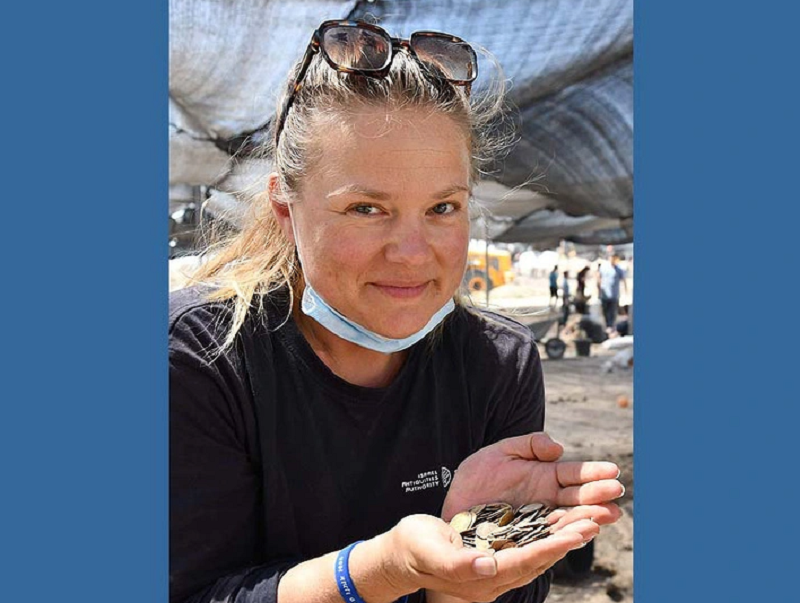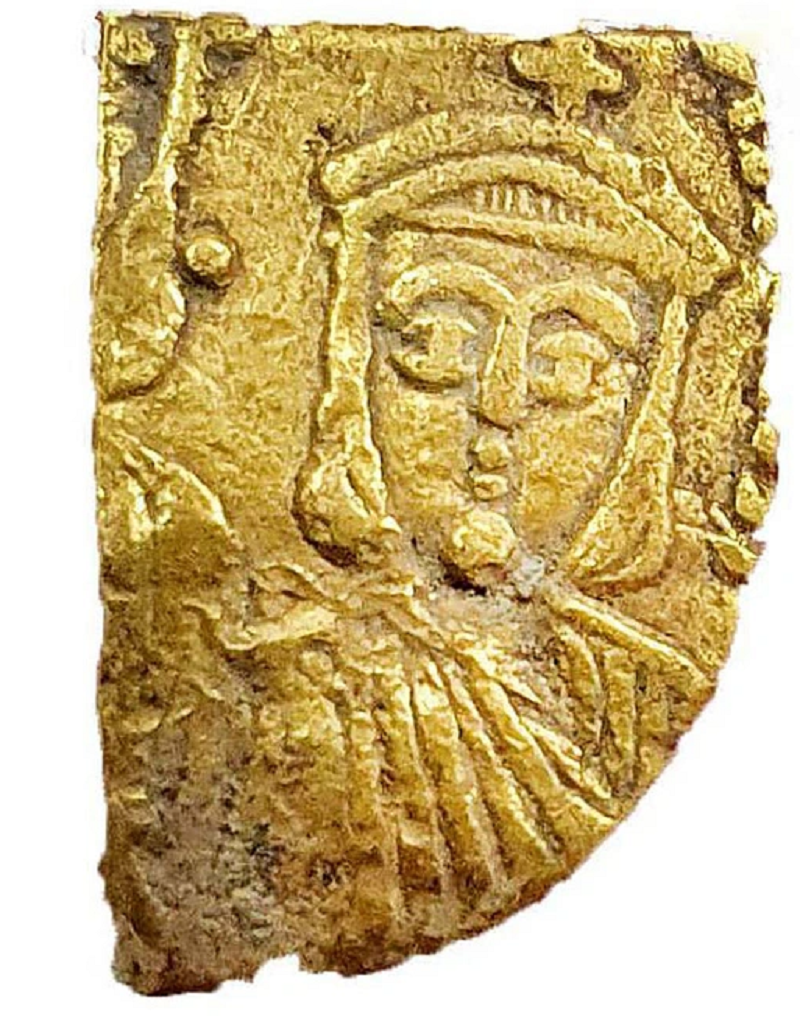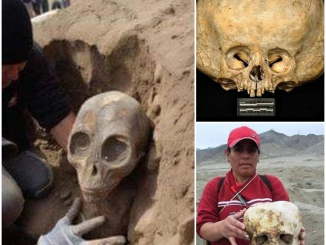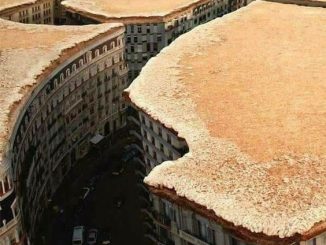A rare trove of pure gold coins from the Abbasid period dating to about 1,100 years ago has been discovered during archaeological excavations in central Israel.
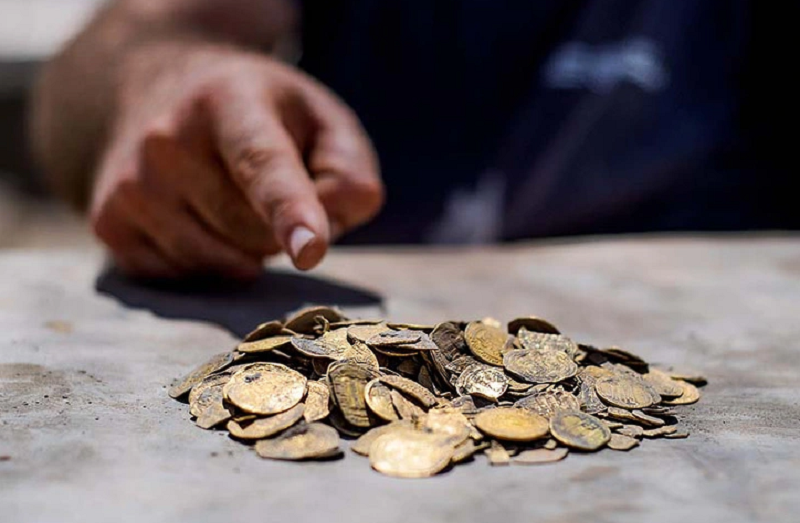
Archaeological excavations conducted by the Israel Antiquities Authority precede the construction of a new neighborhood in central Israel.
The head of the excavation, Liat Nadav-Ziv, and Dr. Elie Haddad of the Israel Antiquities Authority, said: “The gold coin treasury was deliberately buried in the ground in a clay jar, containing 425 gold coins, almost “All date back to the Abbasid period. The person who buried this treasure 1,100 years ago must have hoped to get it back.”
The two scientists also said that finding gold coins in such large quantities is extremely rare, because gold is very valuable and is reused from generation to generation.
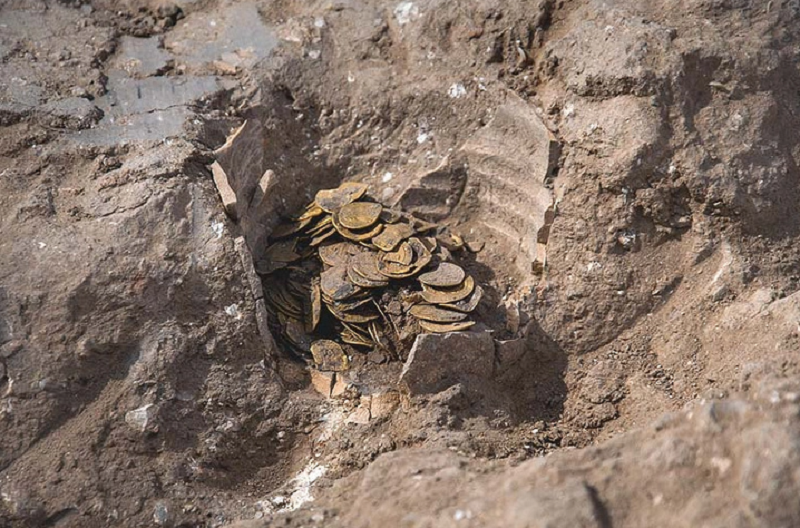
“The coins are made of pure gold that does not oxidize when exposed to air. They were found in excellent condition as if they had just been buried the day before,” the two scientists said.
Coin expert Robert Kool at the Israel Antiquities Authority said it is difficult to find treasures from the Abbasid period during archaeological excavations in Israel, especially gold coins.
Local media said the coins were made of 24-karat pure gold. The total weight was about 845 grams of pure gold – not a small amount of money compared to that time.
“With such a large amount of money, it is possible to buy a luxury house in one of the best neighborhoods in Fustat, the wealthy capital of Egypt at that time,” said expert Kool.
Initial examination shows that the coins date back to the late 9th century. During this period, the area where the coins were found was part of the vast Abbasid empire, stretching from Persia in the east to North Africa is to the west, with the center of government located in Baghdad, Iraq.
Besides the gold dinars, the newly discovered archaeological treasure also has about 270 small gold pieces, cut from gold coins to make change.
Among them, there is an extremely rare piece of gold, never before found in excavations in Israel: a fragment of a gold coin depicting the Byzantine emperor Theophilos, minted in Constantinople.
The appearance of this rare piece of Byzantine coin in an Islamic vault is rare physical evidence of trading links between the two rival empires during this period.
Expert Kool said that “this rare treasure certainly contributes a lot to research, because artifacts found from the Abbasid period in Israel are relatively few. Hopefully they will tell us more about the period that we know.” there is very little understanding”.
